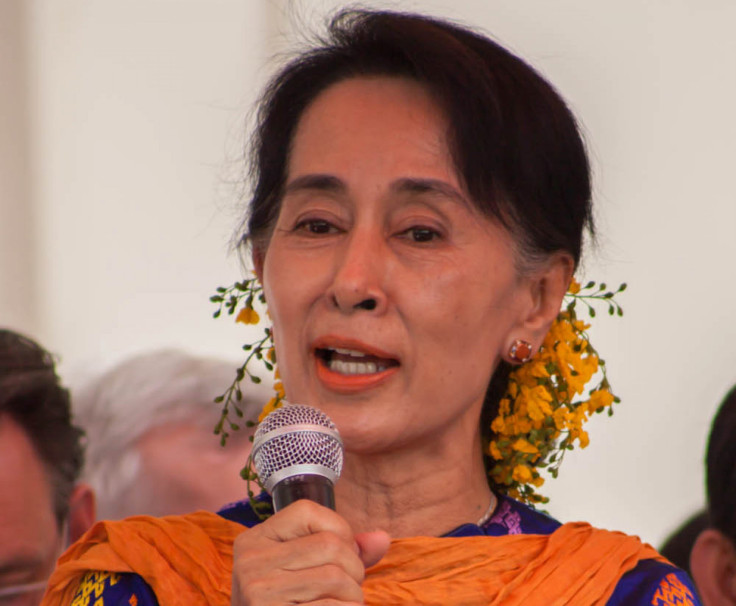Myanmar’s Opposition Led By Aung San Suu Kyi Holds First Party Congress

Myanmar’s opposition, the National League for Democracy, led by pro-democracy activist, Aung San Suu Kyi, began its first party conference on Friday to elect new leadership.
Nearly 900 delegates have been chosen to attend the congress in Yangon, at which they'll elect new party leaders, with Suu Kyi widely expected to retain the top post, the Associated Press reported.
The NLD, which had its activities restricted under the country’s former military leaders, won a landslide victory in by-elections in April.
Party officials said they hoped that the first congress will make the party structure and operations more reflective of its democratic ideals and bring about a youth-oriented reform, the AP report said.
Earlier this week, the BBC reported that Suu Kyi wrote in the party's newspaper that it was "necessary to strengthen the party with new blood and it is necessary to make correct choices.”
The party congress is being viewed as a sign of massive pro-democracy changes in a country, which, until recently had been considered a pariah state.
From 1962 to 2011, Myanmar, previously known as Burma, was ruled by a military junta that led to the nation’s isolation from the rest of the world. The dictatorship suppressed almost all dissent and placed Suu Kyi under house arrest in 1989. She was released after an election in 2010, from which she was barred. She was sworn into the parliament weeks after NLD's election victory last year.
Meanwhile, the U.S. has intensified its aid work in Myanmar, winning more cooperation from the government in a country long estranged from Washington, Rajiv Shah, an administrator for the U.S. Agency for International Development, told Reuters on Thursday.
Although the reforms in Myanmar haven't been comprehensive, Western governments, including the U.S., the EU and Australia, have responded to the progressive measures championed by the nation's current semi-civilian government under President Thein Sein, by easing several sanctions that were put in place during the military rule.
Shah said he has witnessed an "explosion of international support for this transition." He noted that 59 international nongovernmental organizations and 22 bilateral donor countries are working in Myanmar.
"There's a real dialogue and engagement with government at a broad range of levels and there's real progress on these reforms," he said.
© Copyright IBTimes 2024. All rights reserved.












